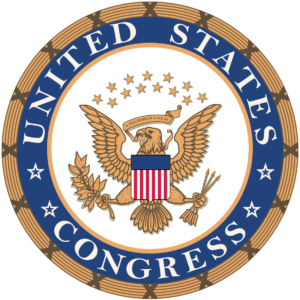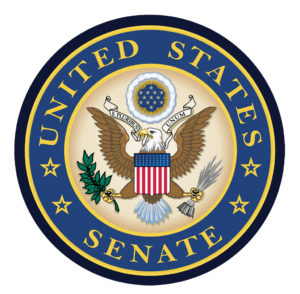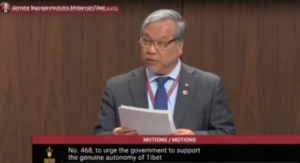 Canadian and US government officials have called for their governments to take action to uphold Tibetan freedom of speech, religion, movement and linguistic rights. They have drawn attention to the current situation where Chinese surveillance and repression of Tibetans has increased in the Tibetan Autonomous Region and greater Tibet.
Canadian and US government officials have called for their governments to take action to uphold Tibetan freedom of speech, religion, movement and linguistic rights. They have drawn attention to the current situation where Chinese surveillance and repression of Tibetans has increased in the Tibetan Autonomous Region and greater Tibet.
In the United States, 32 Members of Congress signed a letter from the Human Rights Commission to Secretary of State Mike Pompeo on May 7, urging enforcement of the 2018 Reciprocal Access to Tibet Act, which addresses the current lack of access to Tibet for Americans, and the 2002 Tibet Policy Act which calls for China to negotiate an agreement on Tibet with His Holiness the Dalai Lama’s representatives. In the letter, the Representatives expressed “deep concern for the well-being of the Tibetan people under Chinese rule” and asked the Secretary of State and the President to “address the lack of respect for human rights in Tibet during all your meetings with senior Chinese government officials.”
 Two days later, on May 9, members of the US Senate Foreign Relations Committee drew “attention to the state of Tibetan Buddhism under Chinese rule” in a letter to Sam Brownback, Ambassador-at-Large for International Religious Freedom,and a known strong supporter of religious freedom. This 11 member bi-partisan group expressed their “shared belief that promoting religious freedom must remain a central pillar of US foreign policy.” They strongly urged the Ambassador to share his views with them and spearhead international and US government efforts “to ensure the 15th Dalai Lama is chosen according to religious practice.”
Two days later, on May 9, members of the US Senate Foreign Relations Committee drew “attention to the state of Tibetan Buddhism under Chinese rule” in a letter to Sam Brownback, Ambassador-at-Large for International Religious Freedom,and a known strong supporter of religious freedom. This 11 member bi-partisan group expressed their “shared belief that promoting religious freedom must remain a central pillar of US foreign policy.” They strongly urged the Ambassador to share his views with them and spearhead international and US government efforts “to ensure the 15th Dalai Lama is chosen according to religious practice.”

Canada’s Conservative Party Senator Hon Thanh Hai Ngo during his speech in the Senate Chamber on his Motion on Tibet
Photo: screen grab
In Canada, Senator Hon Than Hai Ngo moved a motion to raise awareness of the serious and recurring human rights abuses in Tibet and to urge the Government of Canada to take stronger action with China in support of genuine autonomy for Tibet. Senator Ngo said when introducing his motion on May 14 that he was “deeply distraught” at the restrictions on fundamental rights and freedoms in Tibet and urged China to grant freedom to Tibetans, to cease detaining dissidents and to free political prisoners. Additionally, the motion called for renewal of the Sino-Tibetan dialogue based on the Middle Way Approach, and for Canada to be granted unlimited reciprocal diplomatic access to Tibet.




 Print
Print Email
Email